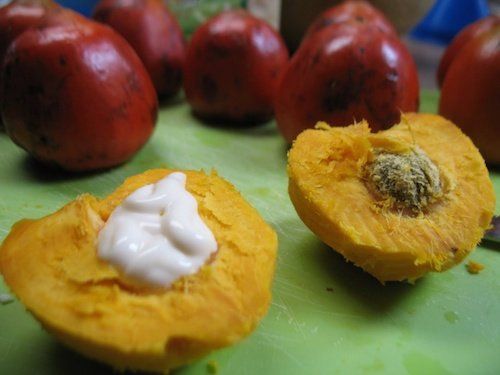The pejibaye

In Costa Rica, for food enthusiasts, the rainy season goes hand in hand with Pejibaye (Bactris gasipaes). This fruit from the peach palm tree is very popular among Ticos, who often enjoy it as a savory snack accompanied by mayonnaise. Many vendors offer it ready-to-eat along the roads in Costa Rica.
Derived from a species of domesticated palms native to Central and South America, the pejibaye is harvested in clusters (from the top of the tree). This fruit with very firm flesh is then boiled in salted water for 45 minutes. Pejibaye has a unique taste and texture, somewhere between chestnut and baked potato.
Pejibaye is a “superfruit”: rich in minerals, vitamins, and fiber! However, it can’t be considered a light snack, as it averages around 200 calories. Due to all these properties, pejibaye has earned the nickname “vegetable egg.” Its consumption is recommended for people suffering from anemia, anorexia, digestive disorders, memory issues, and it’s even attributed with aphrodisiac properties (though this popular belief hasn’t received scientific proof so far!).
Costa Ricans adore it as a coffee-time snack. Some prepare it as a creamy soup or as ceviche. The new Costa Rican culinary scene has embraced this typical product, giving it a more gastronomic touch!
